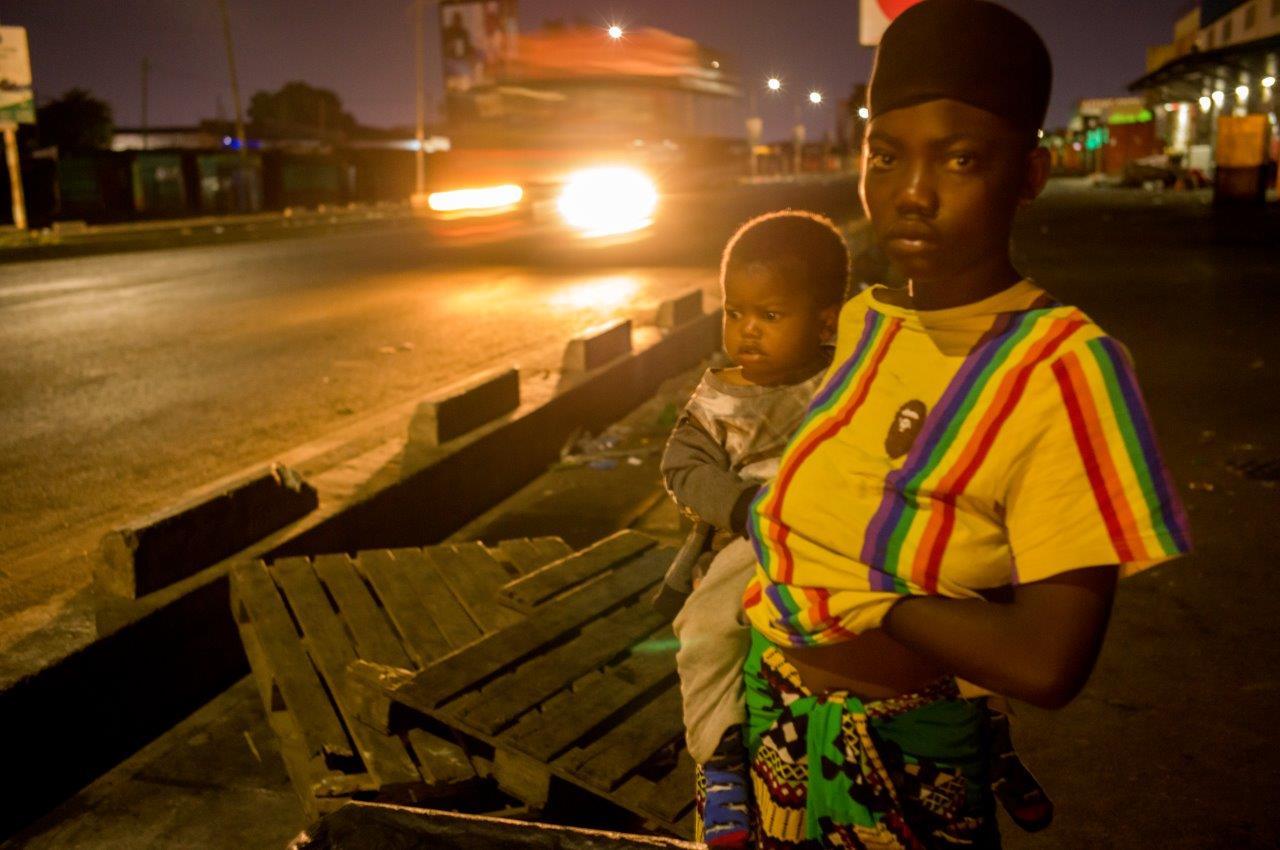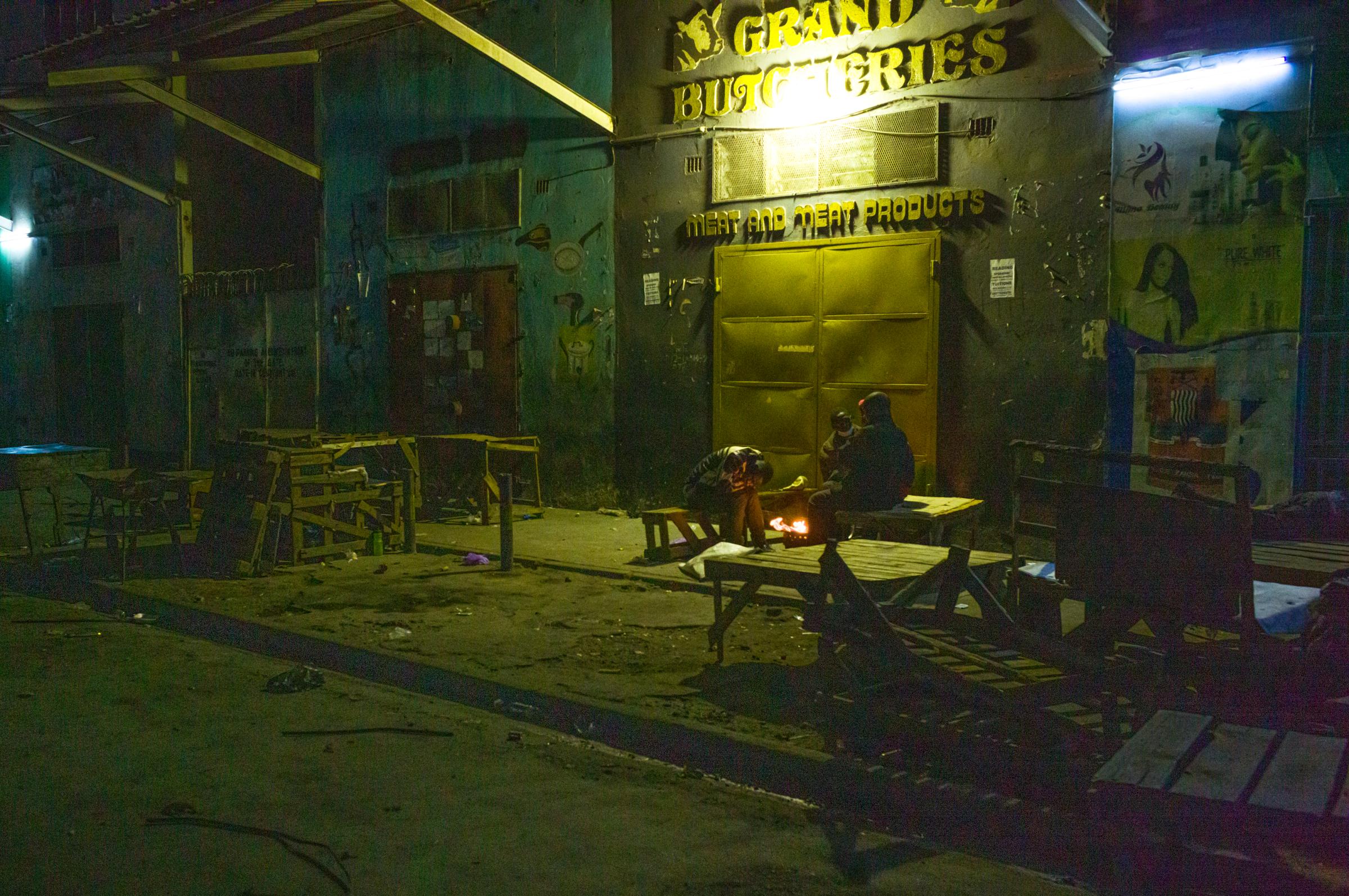
Life at night on the street in Lusaka, Zambia is the place where children and young people can be found. They are here having escaped a domestic violence situation at home or to escape incest violence.
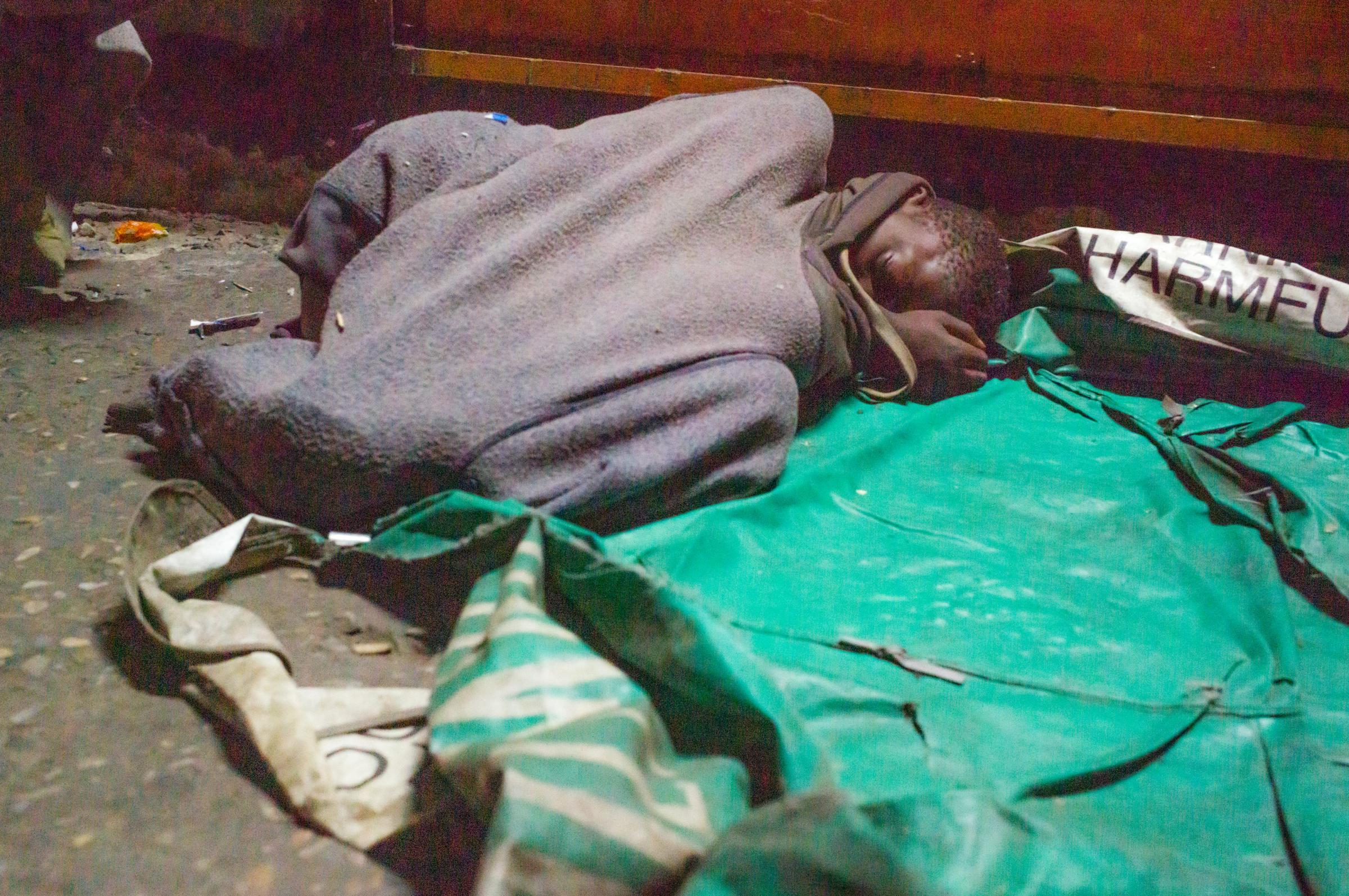
The children sleep huddled together under blankets or cardboard or whatever they can find. It gets cold at night even in Zambia.
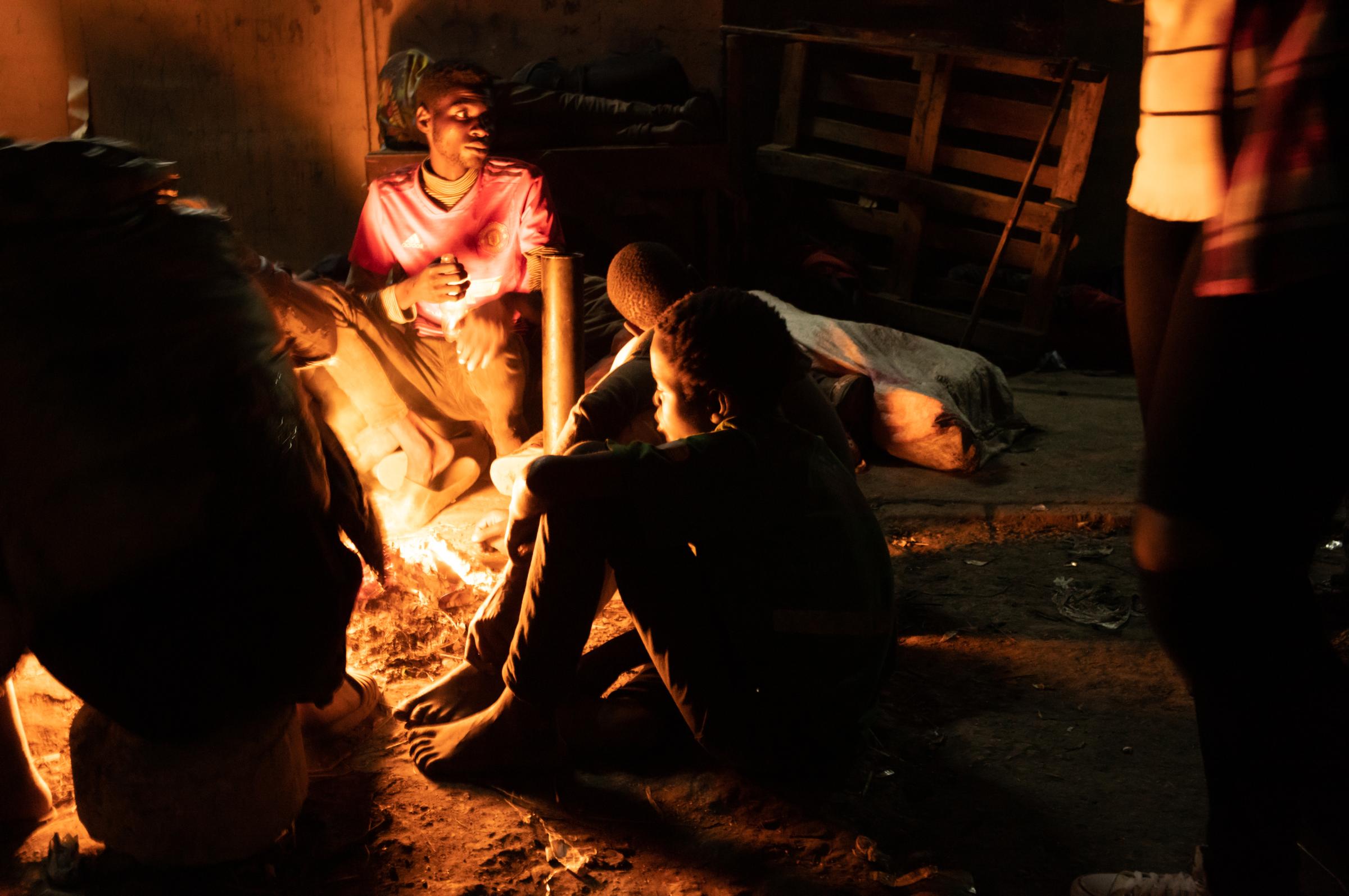
4am. Huddled around a brazier for warmth, a plastic bottle can be seen in the hands of the young man. This is glue which is sniffed to create a high but also to keep the hunger pangs at bay. There is little money and little food in this community.
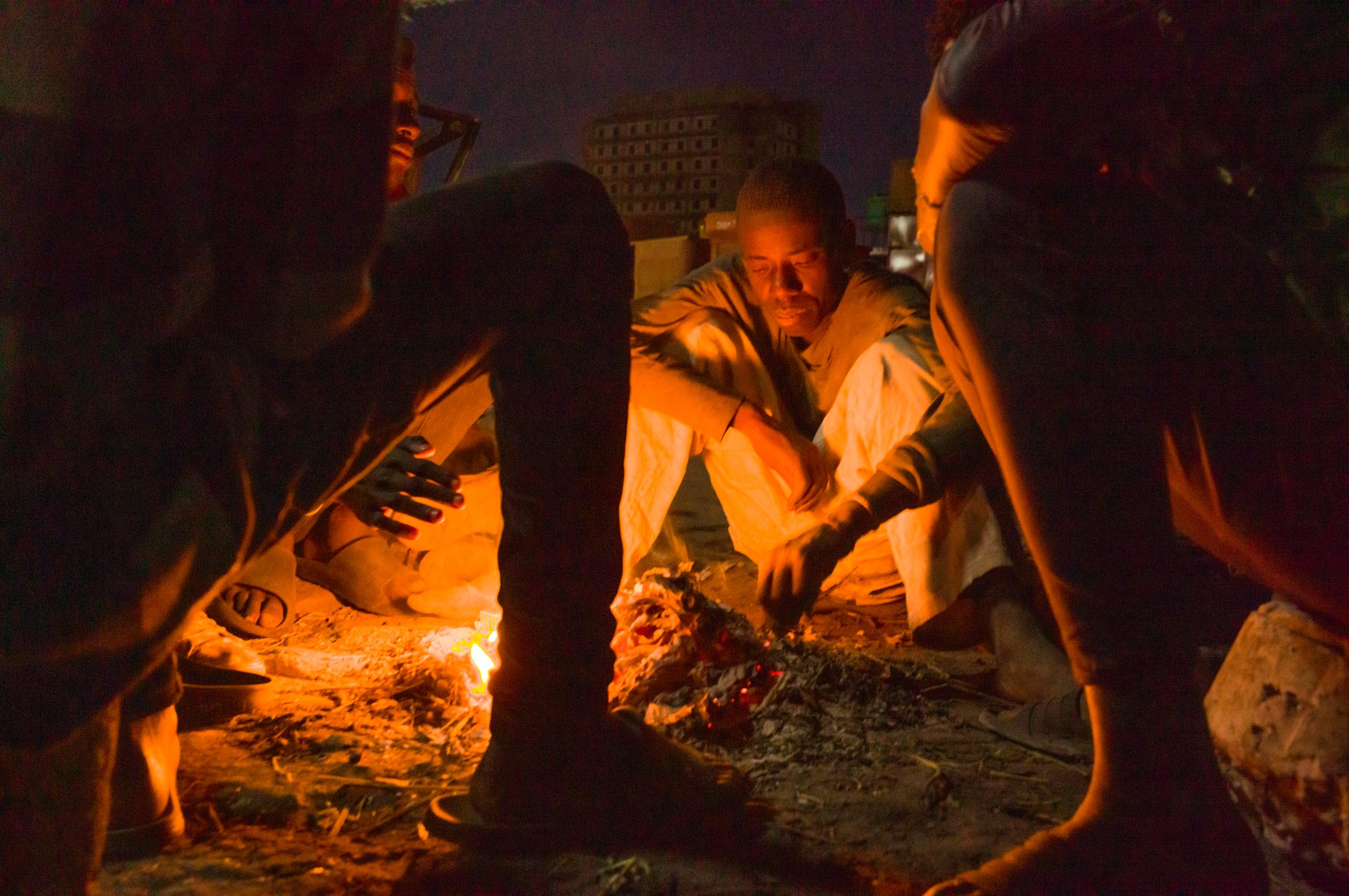
The light of the fire catches the faces of these young men. What are they thinking? What lies in the day ahead for them?
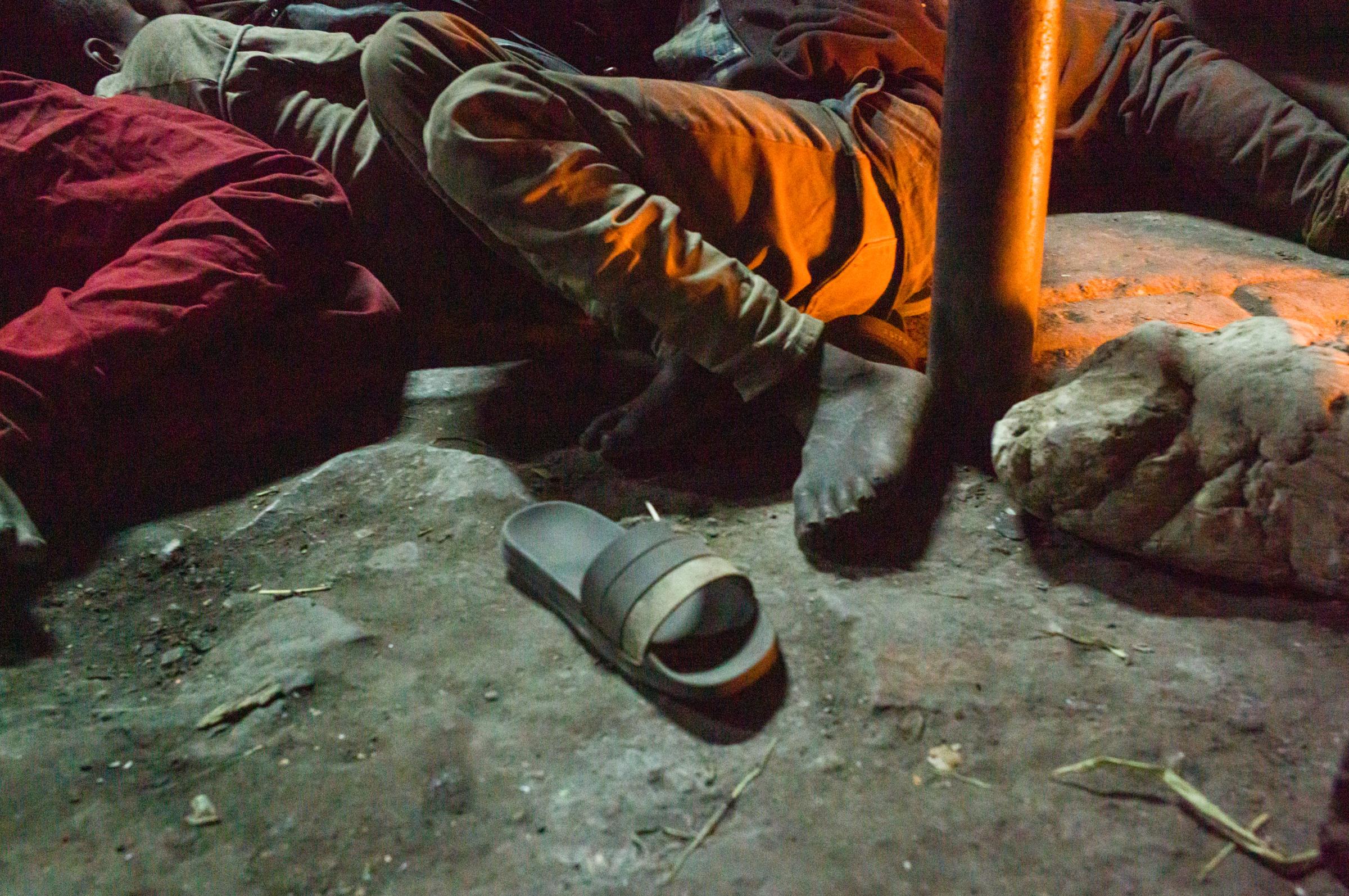
Sleeping on the streets - literally, on the hard pavement. The shoe is a reminder that the total worldly possessions of these children are what they are wearing.
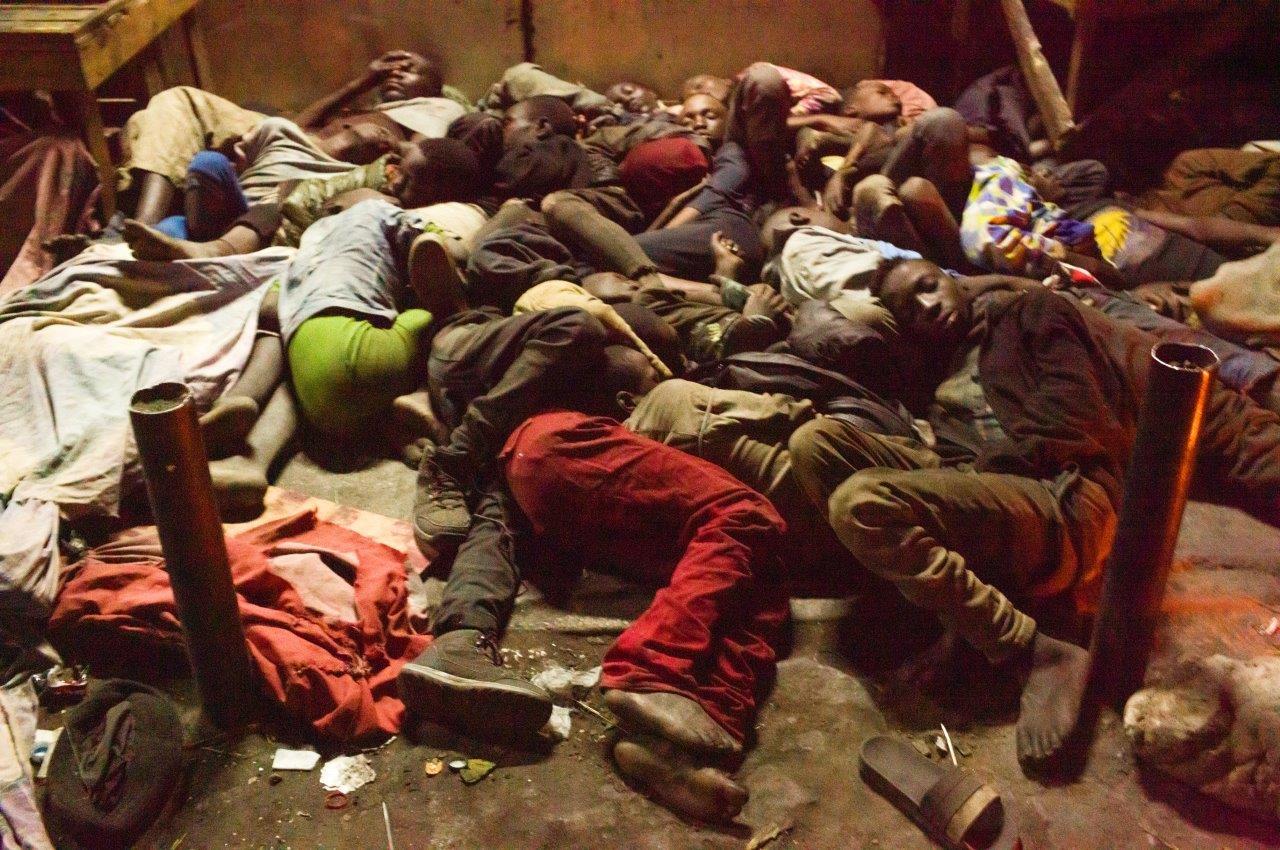
On the street the bodies are huddled together in a pile reminiscent of a mound of dead bodies.
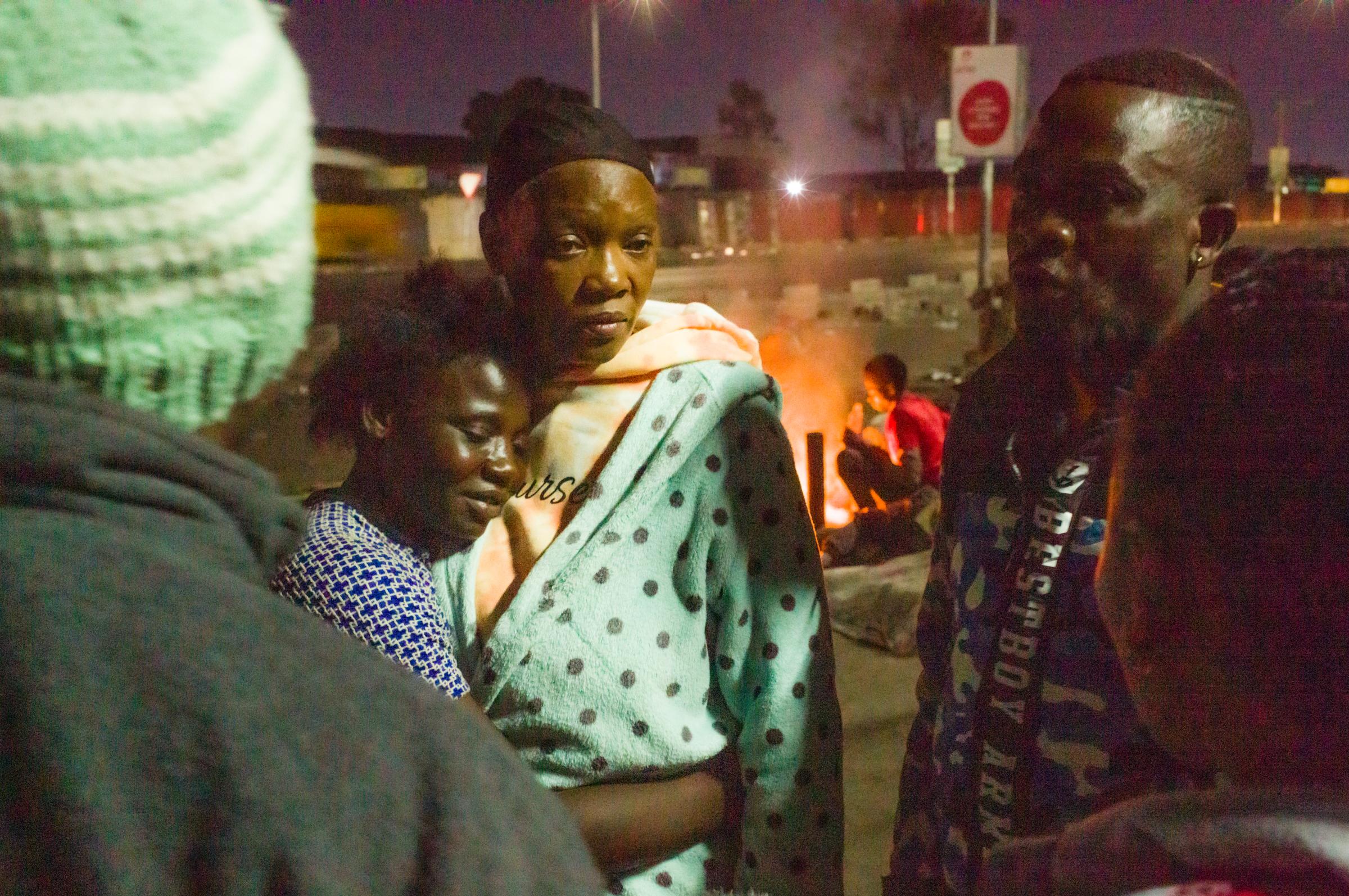
Social workers and local NGOs visit the children on a regular basis. They know the children and there are programmes to release the children into schools and families. The problem is that many don't want to leave the 'security' of the community on the street. They are often more committed to the drugs and the gangs than the prospect of a new and unknown life.
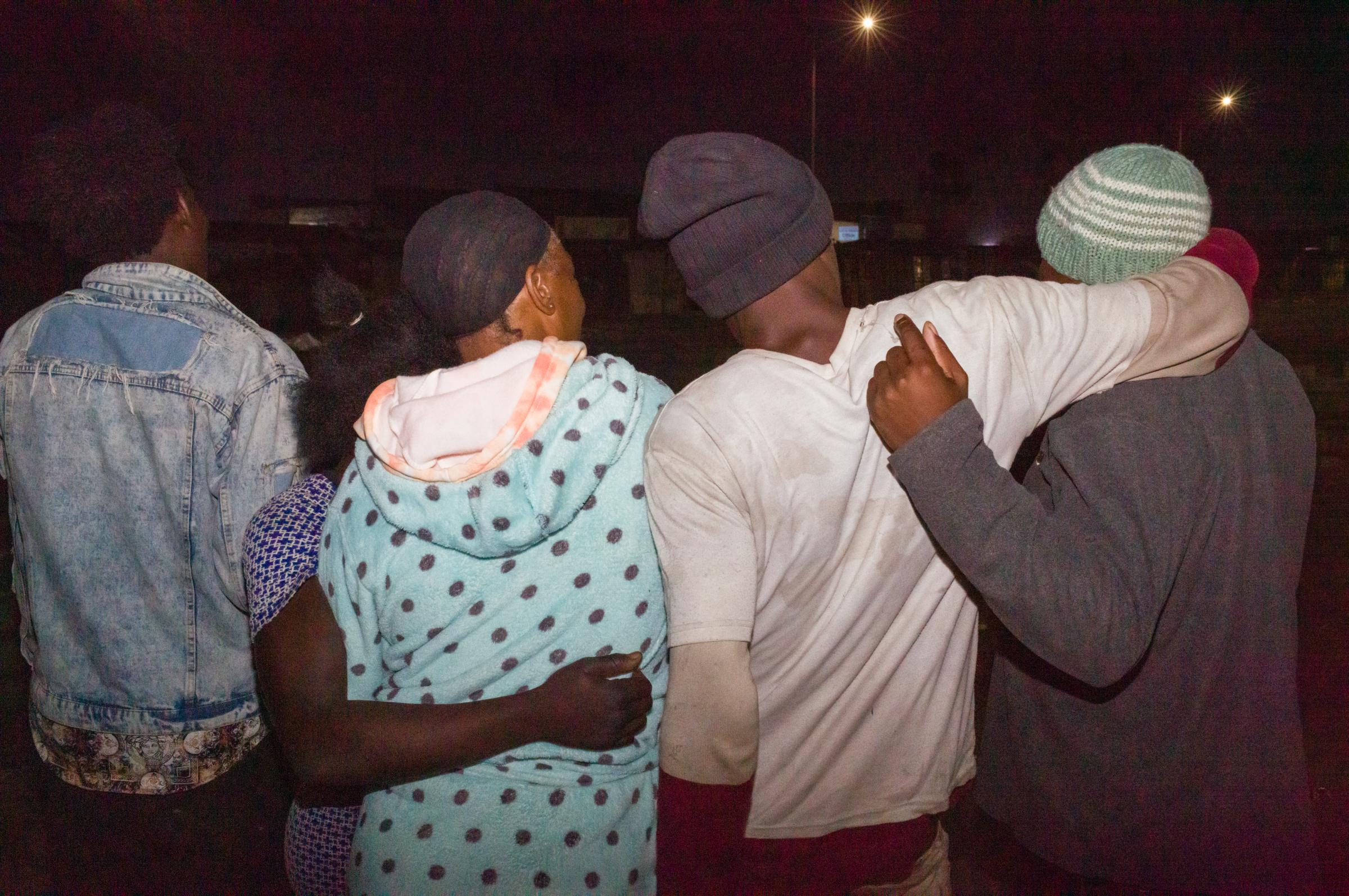
Social workers and NGOs have become fond of these children and young people and provide support for them in many ways.
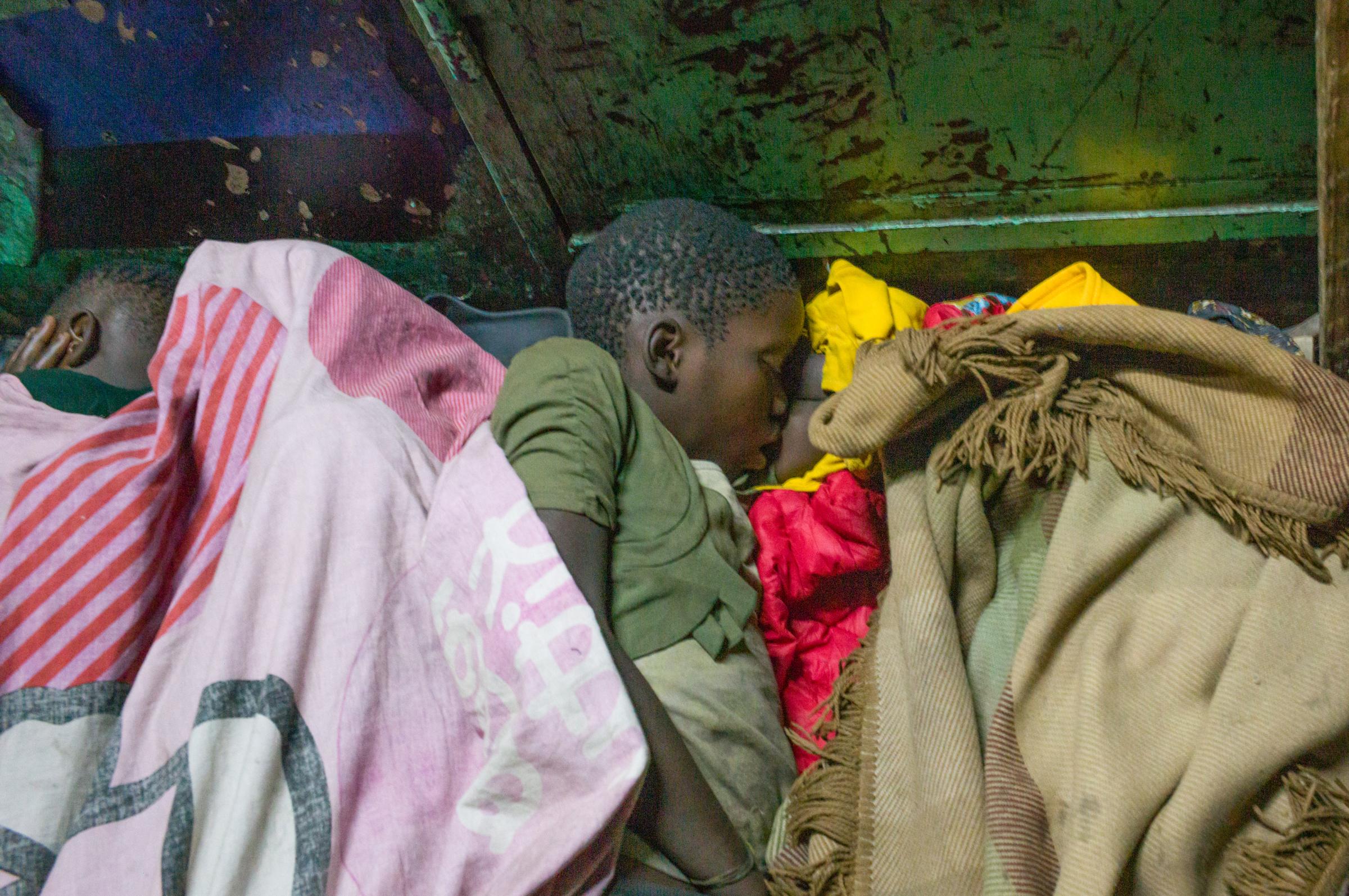
A 3 year old girl lies buried in the blankets (in the yellow). She probably has an older sibling in the community. Was she born here? Many children are.
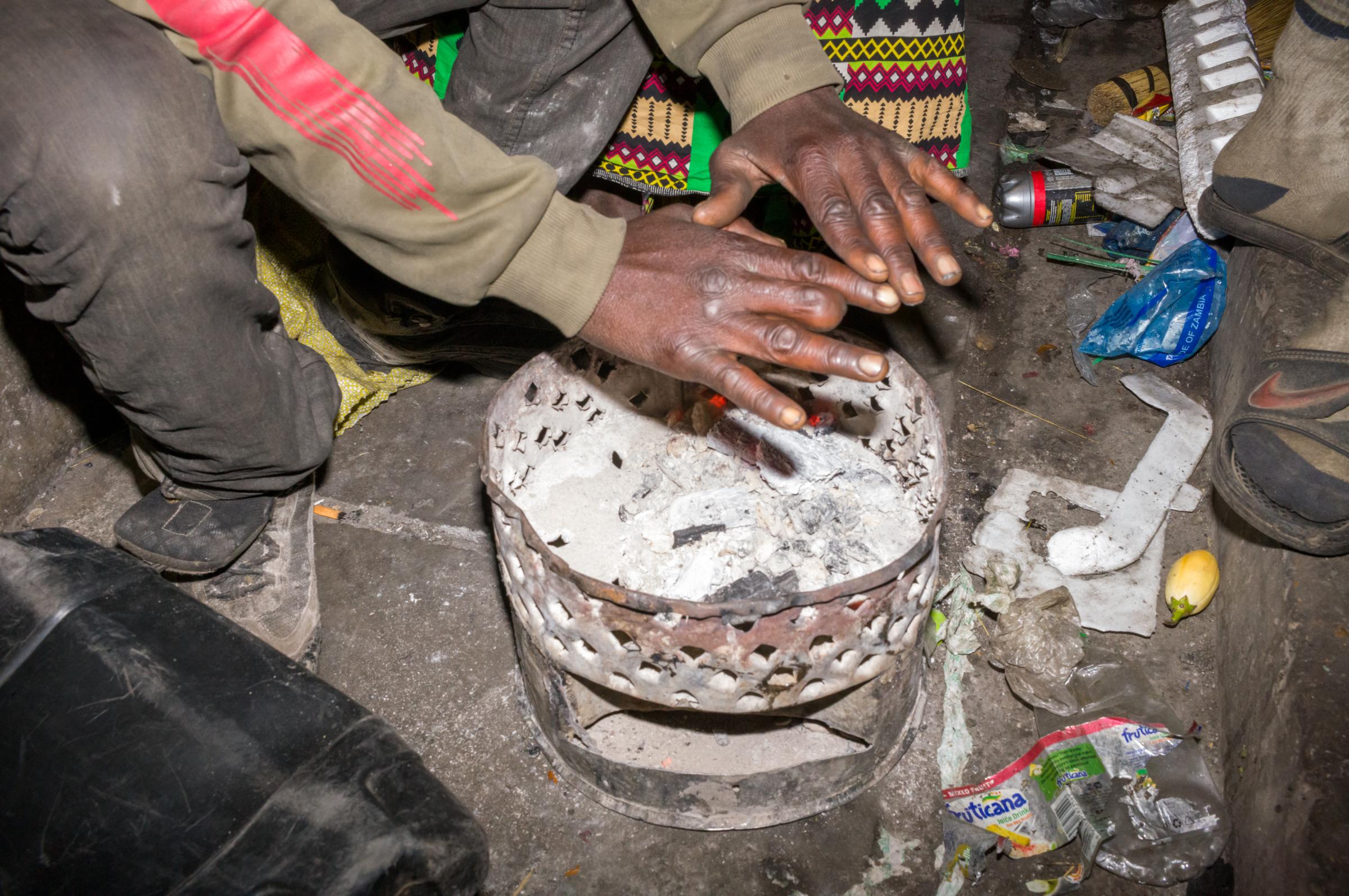
Keeping warm over the embers of the brazier, these hands could tell a story.
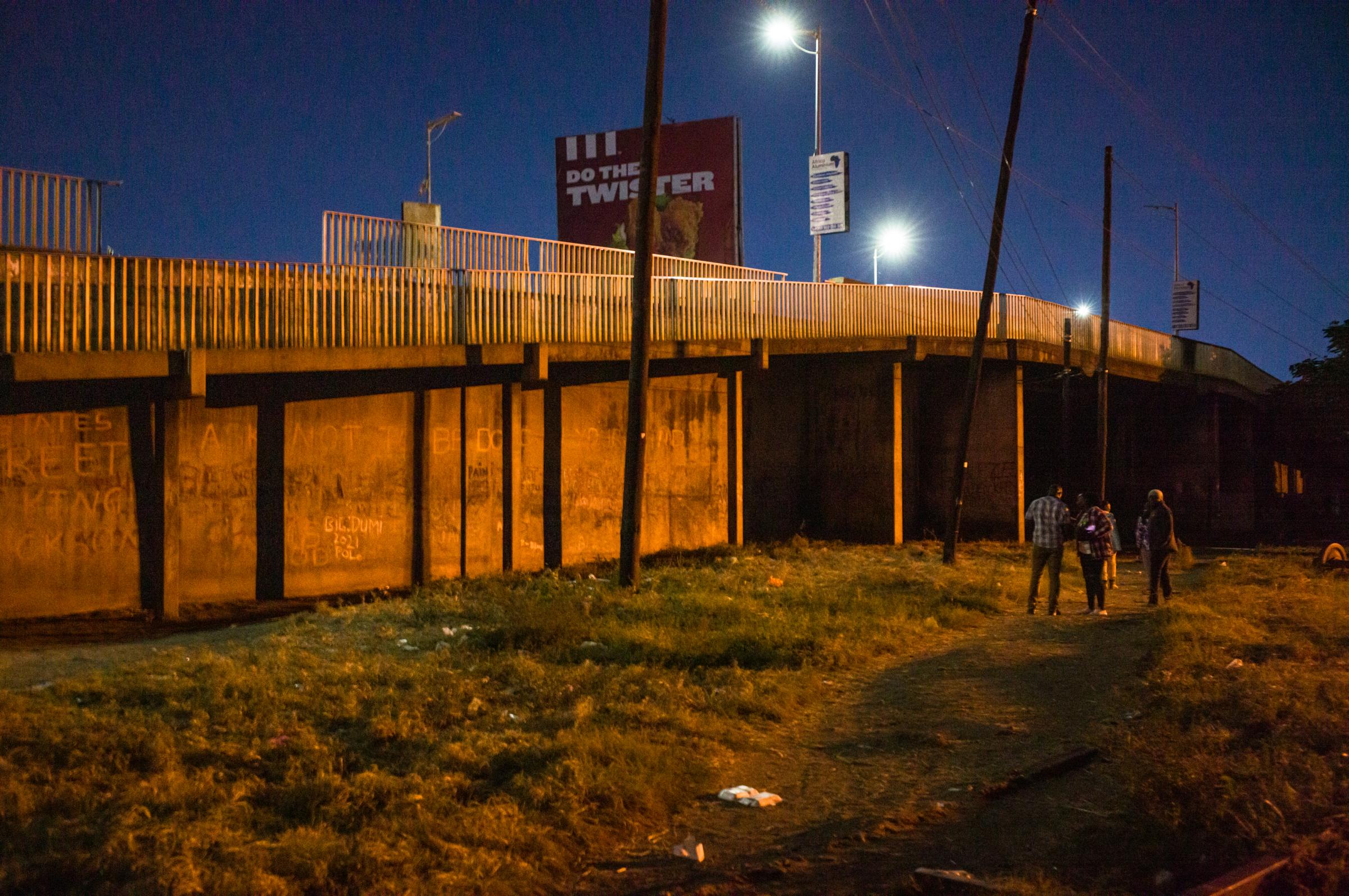
3 am in Lusaka in the underpass over the main road into the city. This is where other communities of young people live.
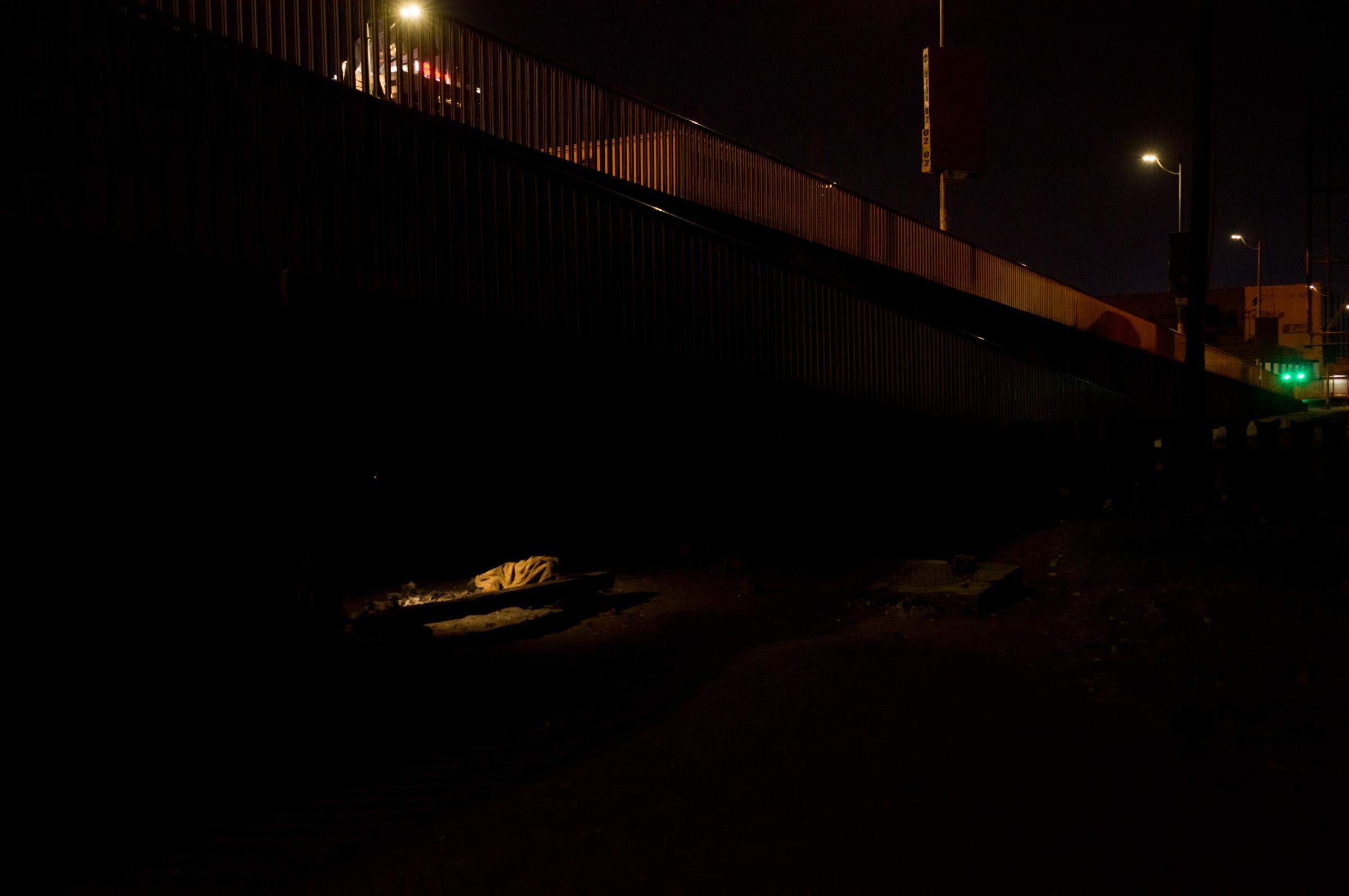
A body under a blanket is lit by a single street lamp; asleep under the bridge.
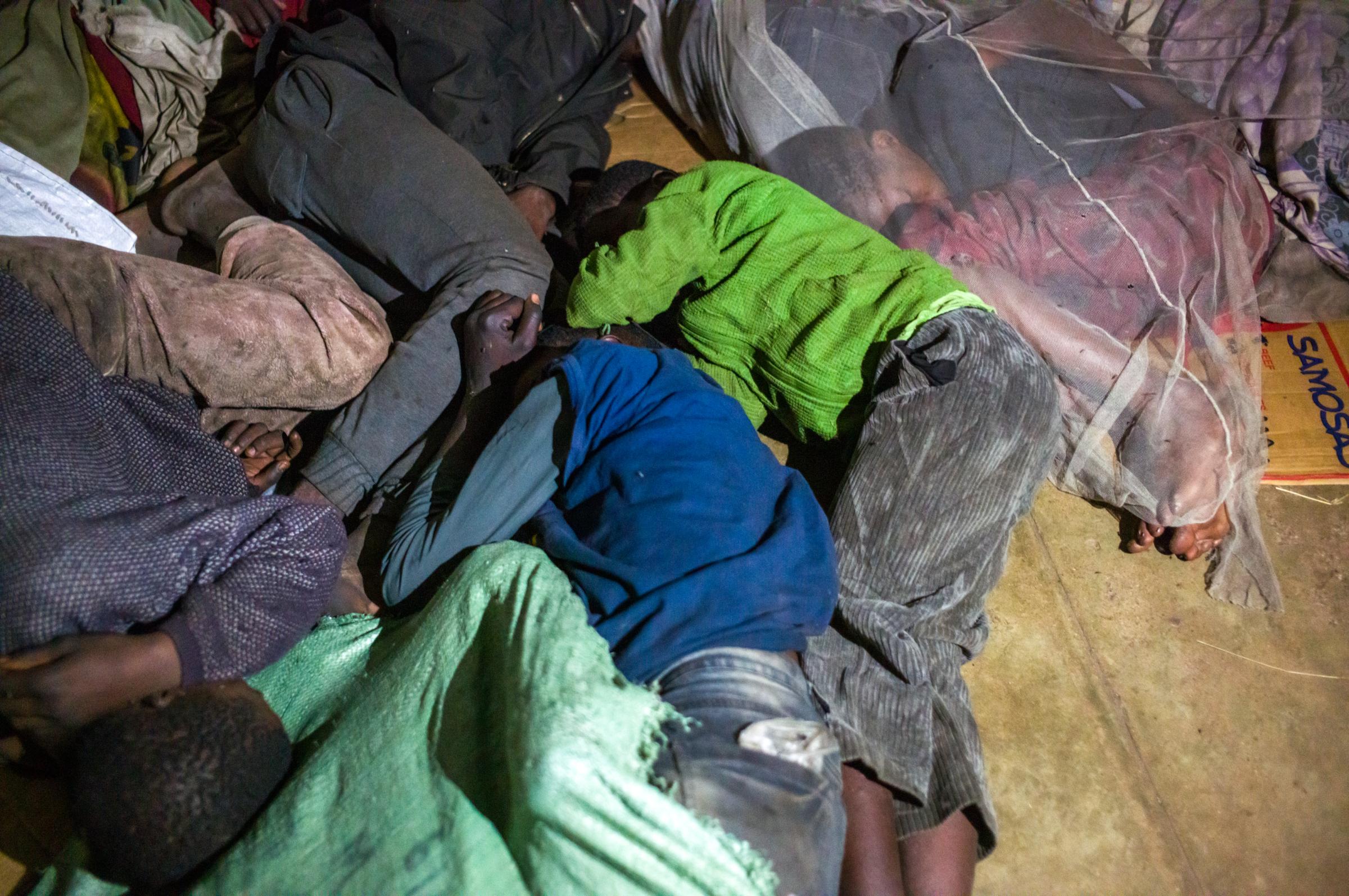
Bodies huddled together under the bridge for comfort and protection.
The mosquitoes swarm here at night and sleeping under a net provides protection from bites, but these young people have built up an immunity to malaria and Covid as well as other communicable diseases. Not a single case of coronavirus has been recorded amongst the young people over the past 2 years.
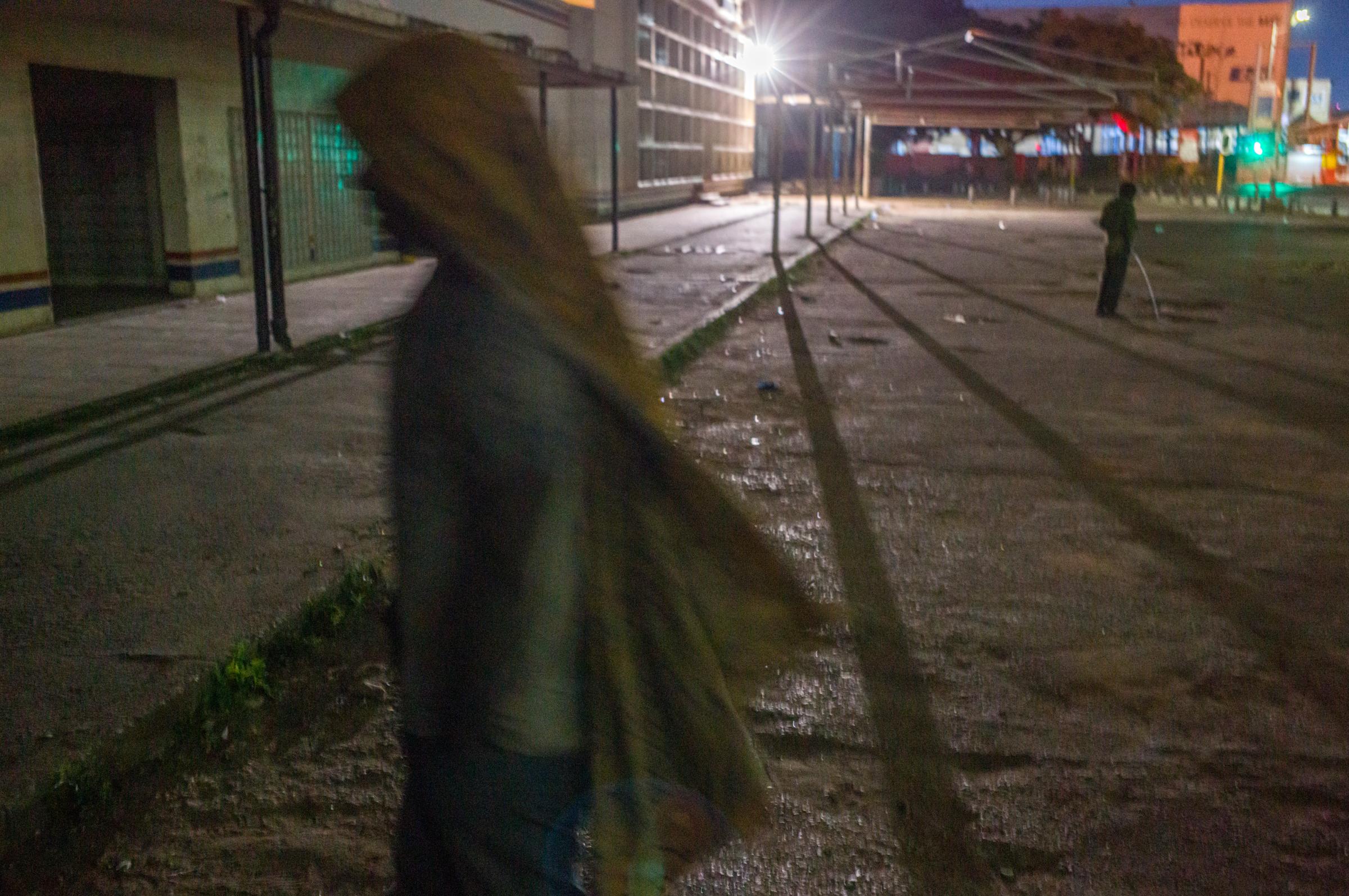
3am A boy comes out of the underpass to relieve himself as another man carries his blanket on his head to return to sleep.
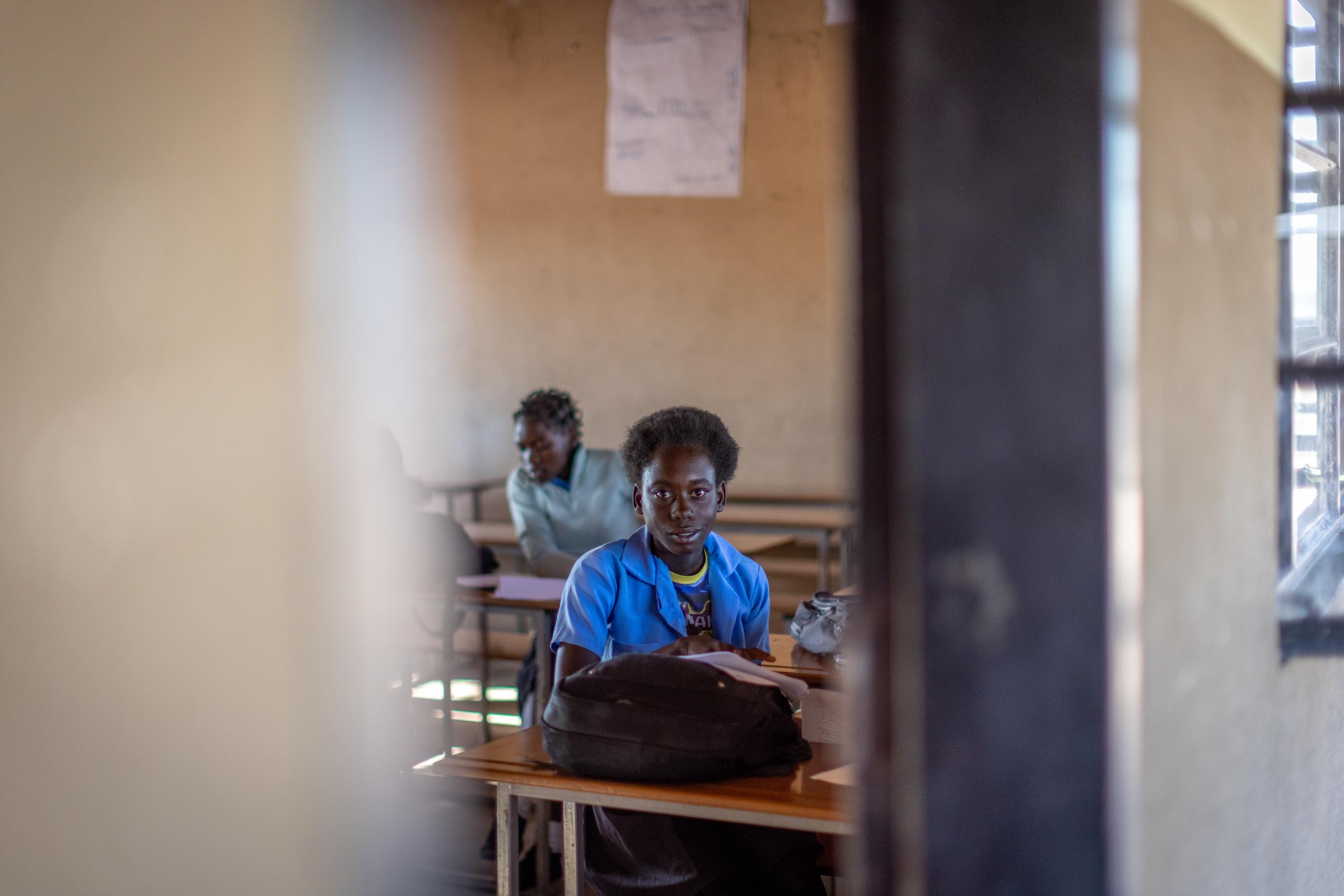
Eastern Zambia. When children decide they want to move off the streets, they are brought to this school in the eastern province of Zambia. They have the chance to learn, to integrate into a family and to escape the clutches of the gangs.
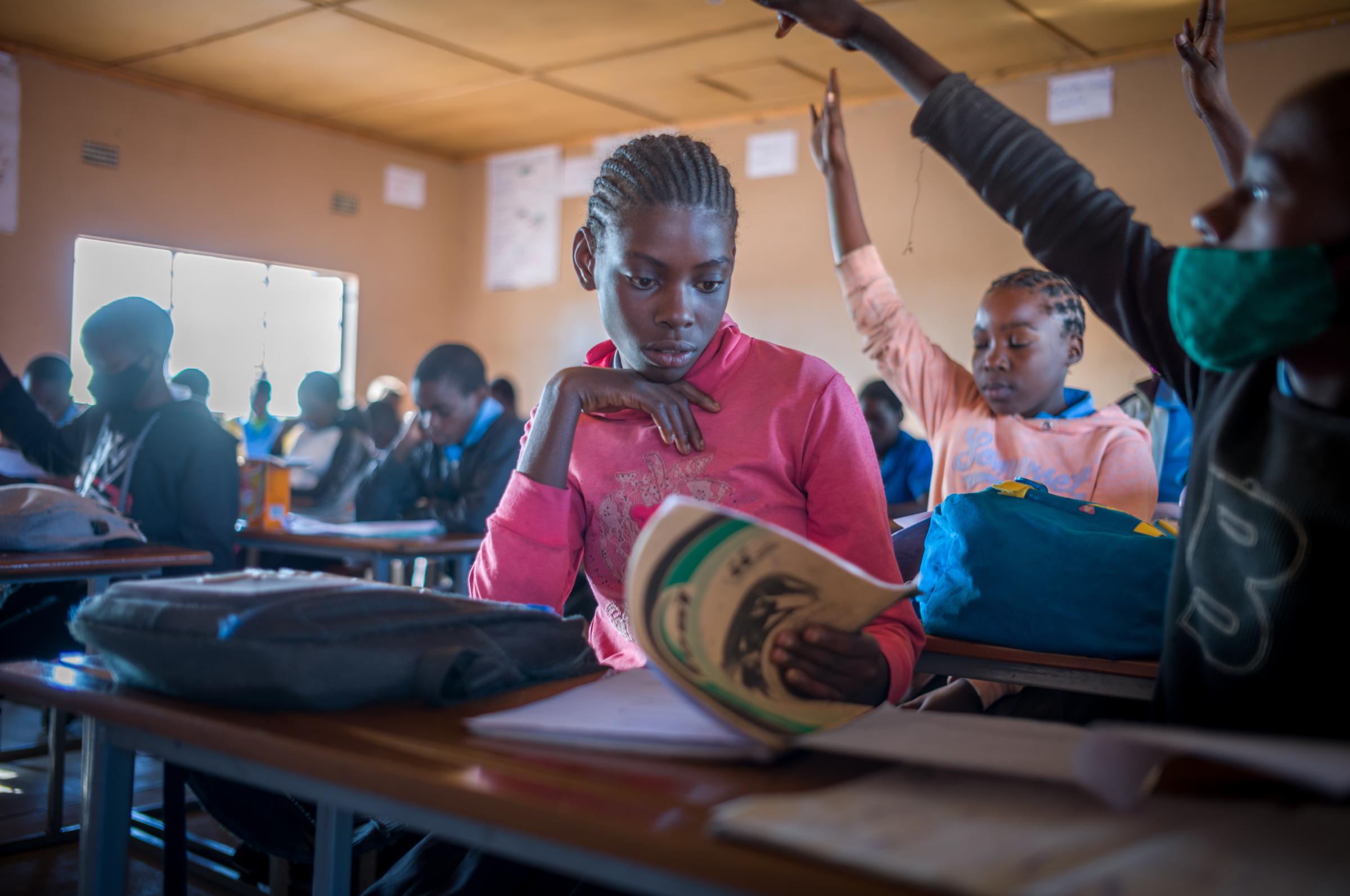
An older girl studies in a classroom which is predominantly filled with 'at risk' and vulnerable children. Many of these school children have seen things and lived lives that could only be described as traumatic.
They will receive trauma counselling in addition to their school studies.
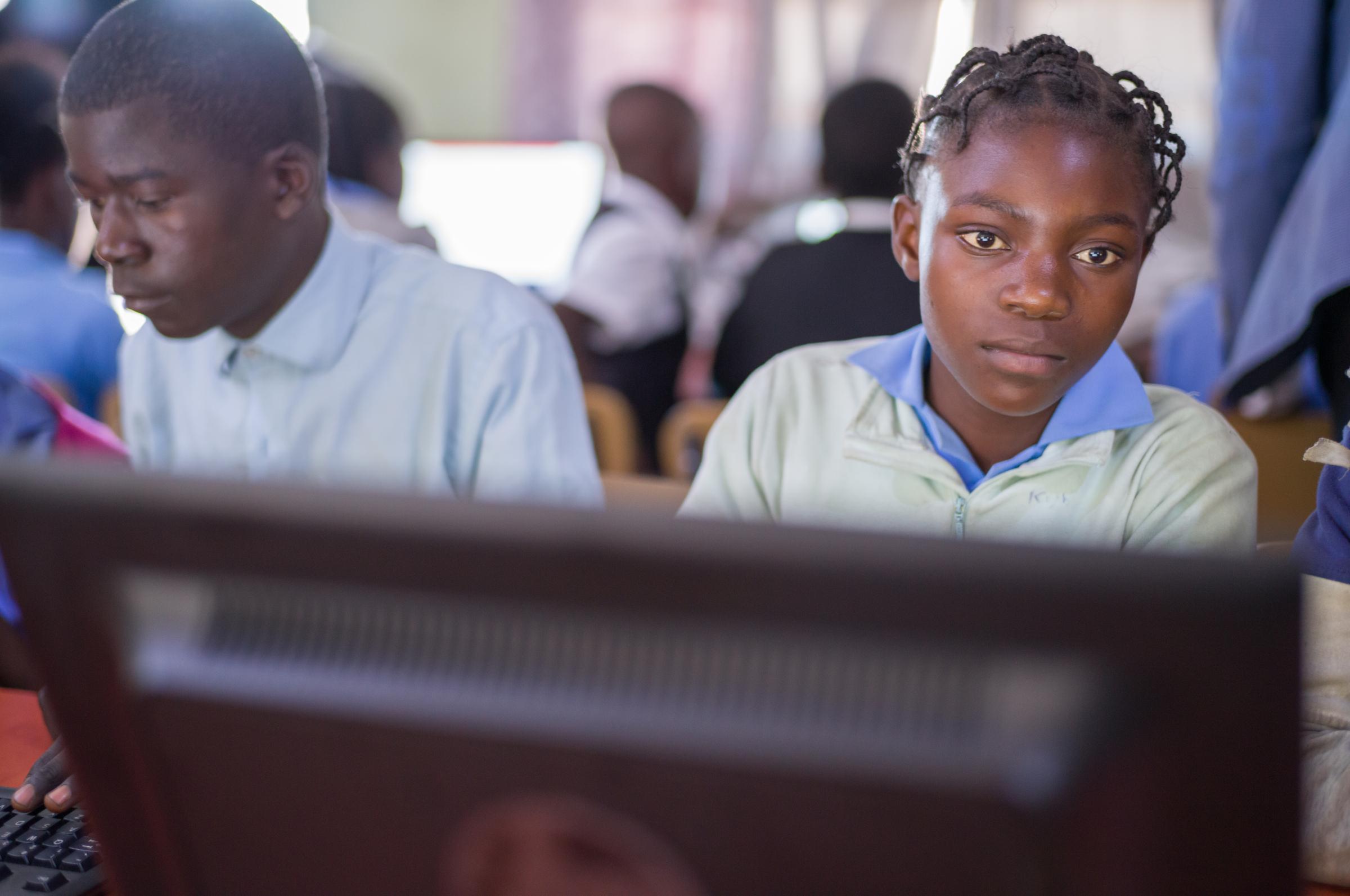
The school even provides opportunities for IT and computer studies with a classroom equipped with computers.
The contrast between the school life and life on the streets is stark.
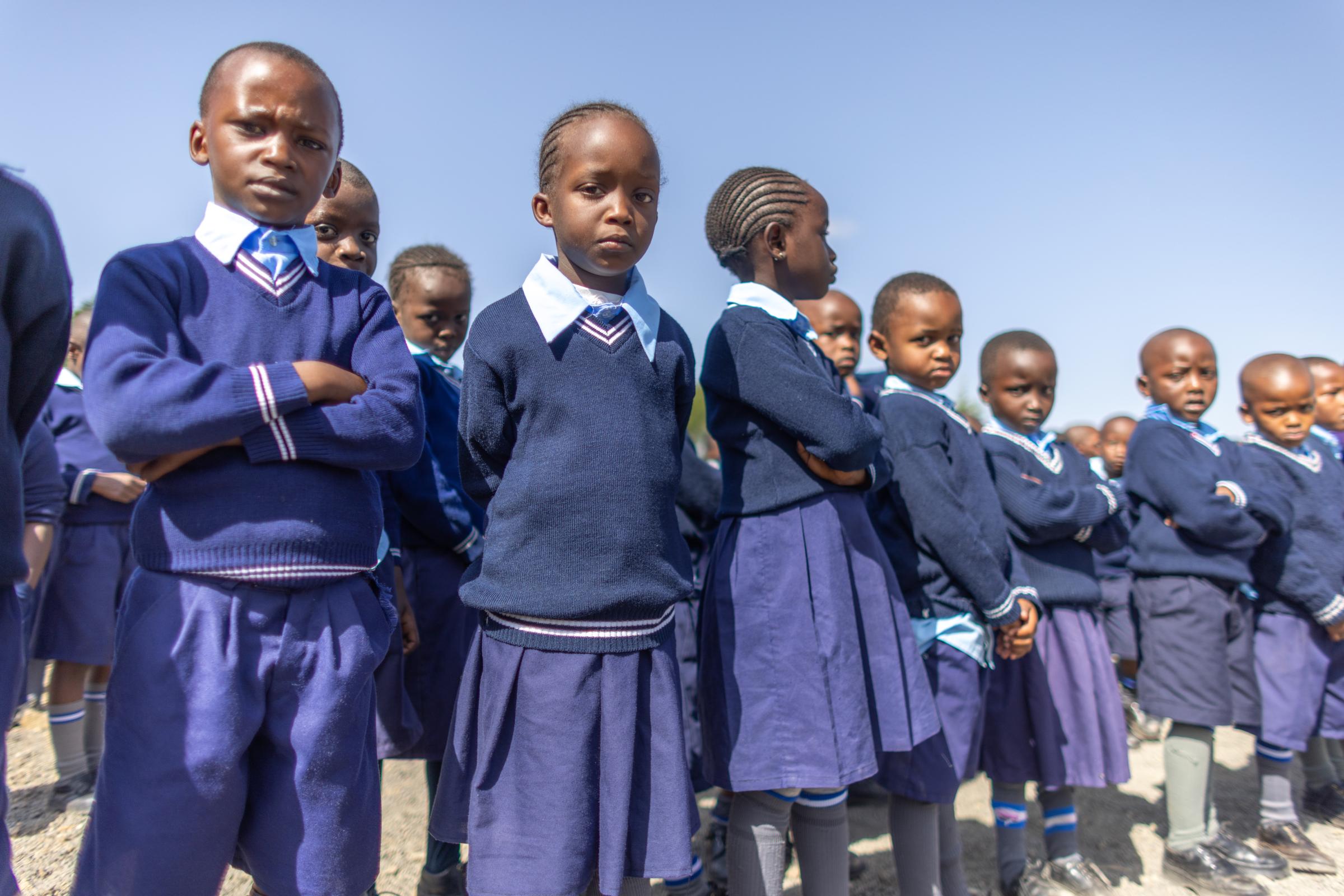
Another school which is run by the same NGO caters for traumatised children, many of whom have been the victims of incest, a widespread problem in East Africa.
Incest is committed mainly by fathers and step-fathers but also by brothers.
Some young girls have their first sexual experience as young as 3 years old.
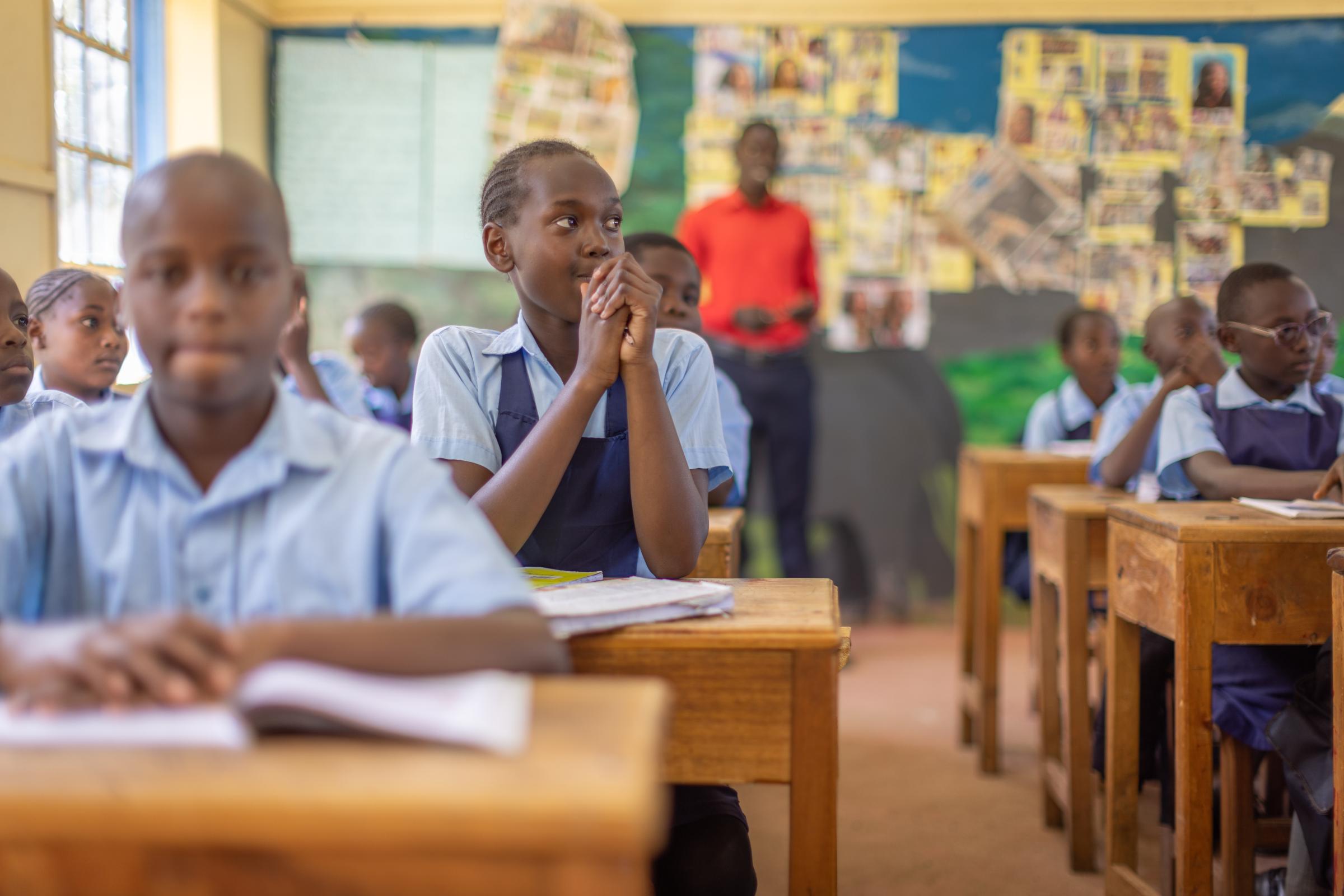
Students will continue their studies until they are old enough to carry on to secondary education or until they are equipped to find employment.
There are many success stories of young people whose lives have been transformed through the process of trauma counselling, education and family re-integration.
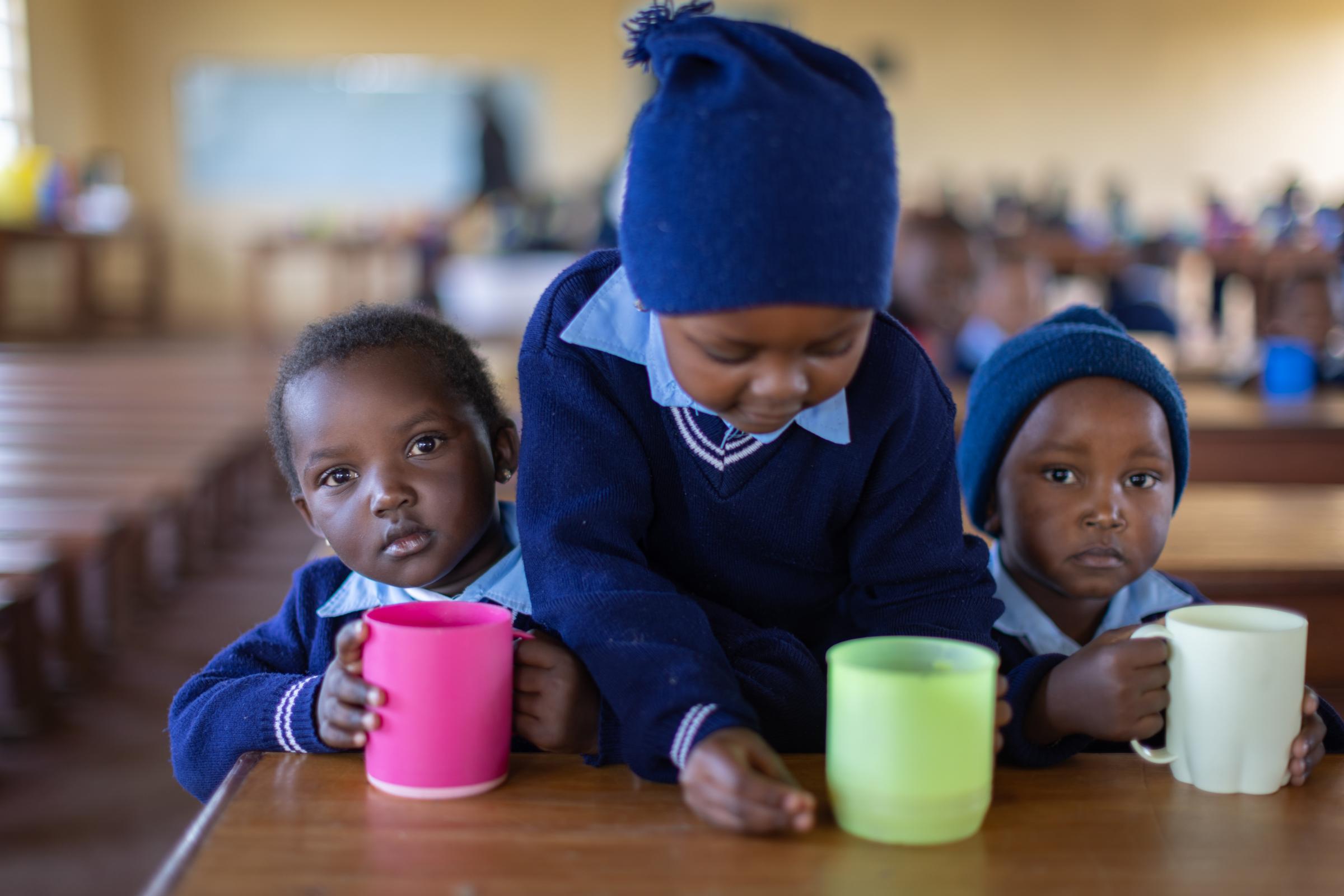
Young children receive a nourishing meal at school twice a day. Without these meals these children come from families who are too poor to feed and nourish them.
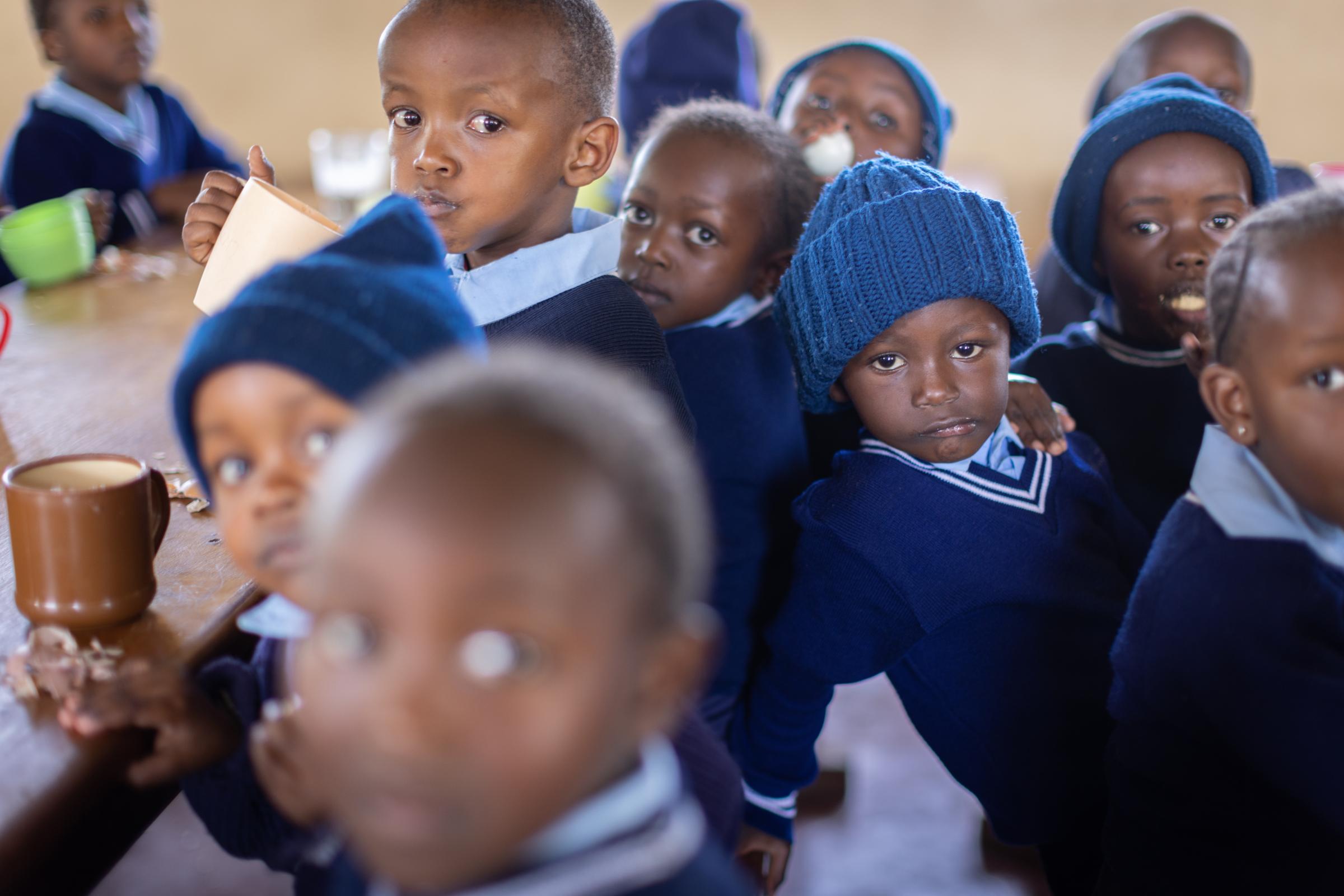
Break-time at school.

